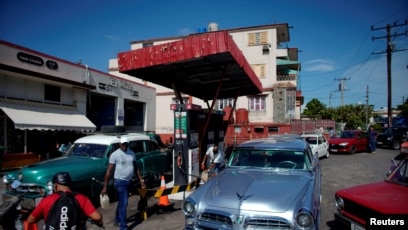
The Cuban government has announced a five-fold increase in fuel prices from February 1, which would see the price of a litre of petrol going up from 25 pesos to 132 pesos, as it struggles with a massive deficit and a worsening economic crisis. The government hopes that the measure reduces its deficit, but this will make life more difficult for cash-strapped Cubans.
Finance minister Vladimir Regueiro said the cost of diesel and other types of fuel would face similar mark-ups, while also announcing a 25 per cent increase in electricity prices for major consumers in residential areas, as well as hikes in natural gas prices, BBC reported. “These measures are aimed at reviving our economy,” he said.
The Cuban government would also open 29 new petrol stations that will solely accept payment in US dollars to raise foreign currency for the purchase of fuel in international markets. Last month, Cuba’s economy minister said Cuba’s communist government could no longer sell fuel at subsidised prices as it was “the cheapest in the world”.
Later, Prime Minister Manuel Marrero Cruz announced a package of measures that, among other things, contemplated an increase in the price of fuel. “In what country in the world can you buy nine liters of gasoline with one dollar?” said Marrero. Finally, on Monday of this week, Finance Minister Vladimir Regueiro confirmed that a liter of regular gasoline, which at the moment has a value of 25 Cuban pesos (0.20 U.S. cents), will cost 132 Cuban pesos ($1.10). Likewise, special gasoline will rise from 30 pesos (0.25 cents) to 156 Cuban pesos ($1.30), a significant increase that the country’s drivers will have to contend with this year. Cuban leaders failed to mention, however, that fuel prices were low compared to prices anywhere in the world, but not in a country where the Cuban peso is increasingly weak against the dollar and where the monthly minimum wage is 2,100 Cuban pesos ($17.50). (Foreign Media)